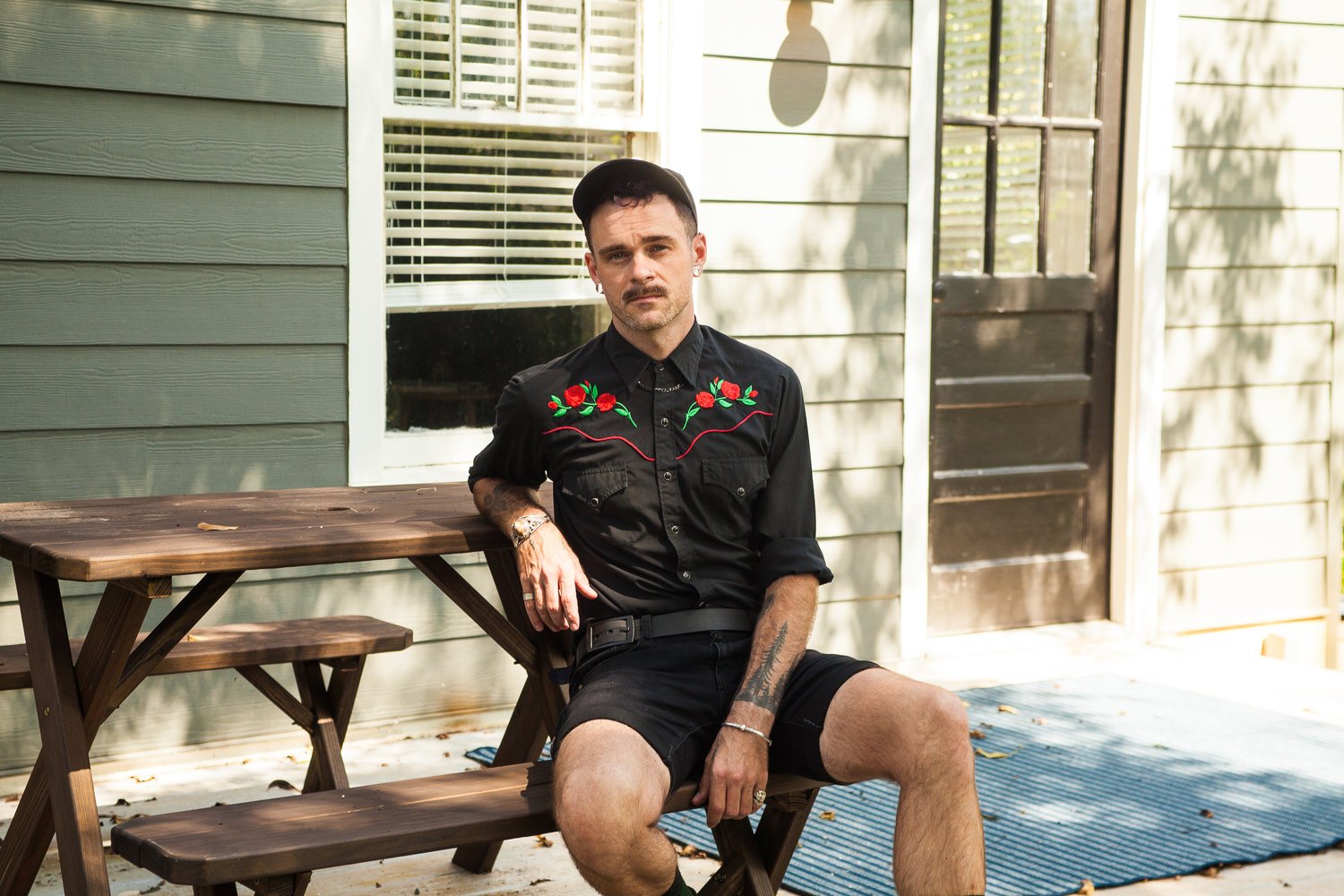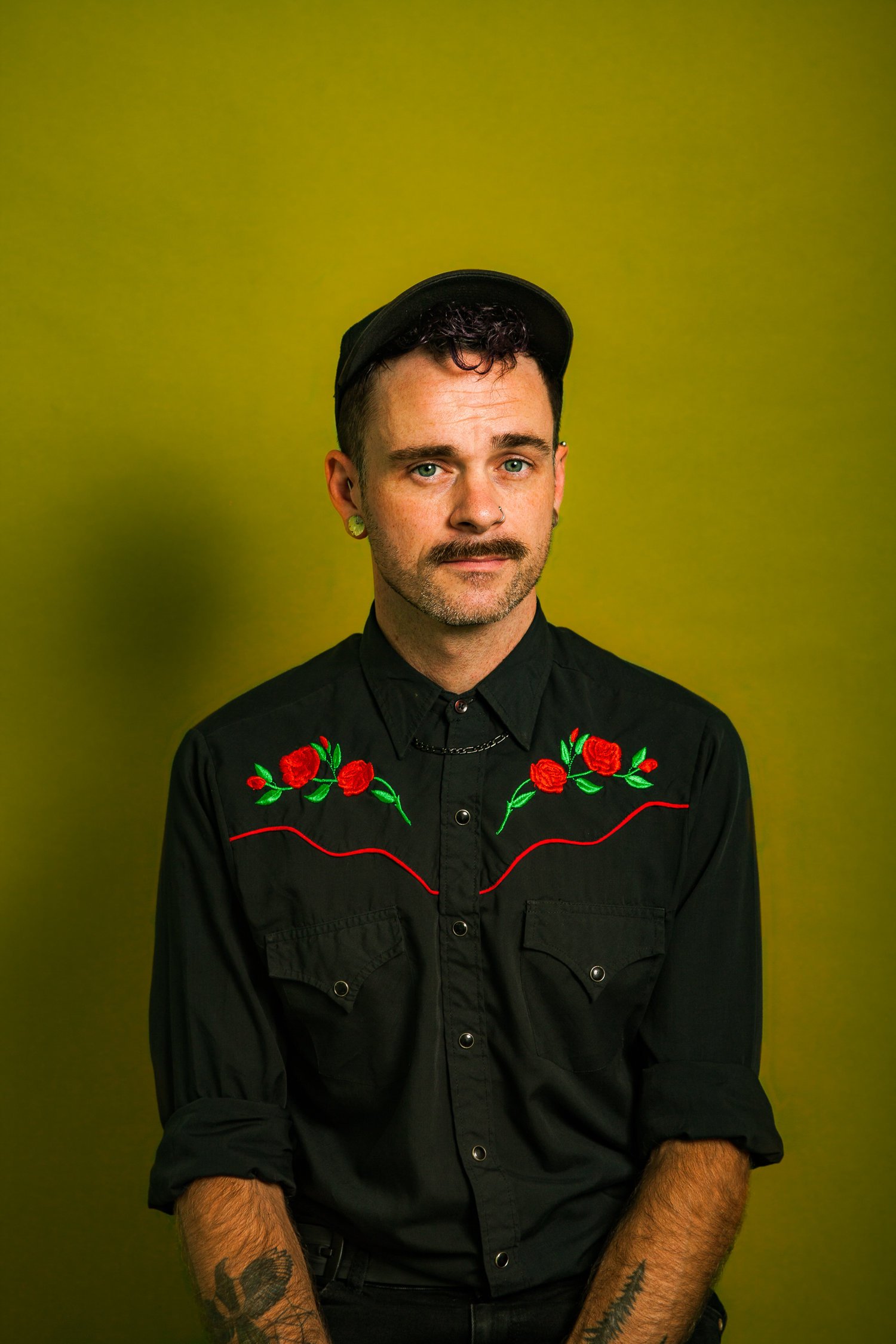How Paganism Empowers Queers: Q&A with Ryan Dwiggins
PHOTO: JON DEAN
Paganism has cast a spell on millennial queers. Most of us can say we have a friend who collects crystals, makes bone shrines, or stays up to date with their astrological readings. It’s rapidly becoming a staple in the modern queer scene. Pop icons like fan-favorite drag queen Alaska Thunderfuck have incorporated mystic and paganistic imagery into her latest album, Amythest Journey. What was once a demonized religion by the larger Christian culture is now being accepted by counterculture queers.
Some of you might be asking, “What is paganism?” Despite what your closeted pastor may have told you, paganism isn’t ‘demon-worship.’ Paganism is a broad umbrella term for religions or spiritual practices outside of the major world religions like Christianity, Judaism, and Islam. Some forms of paganism center around nature-worship, like with druidism or Wicca. While others are concerned with reaching higher forms of consciousness, like in mysticism or shamanism. Together they each center around understanding the individual’s relation to the natural world.
So what’s the connection between queer people and paganism? Why does an ancient nature-worshipping religion appeal to us? Does it come from years of reciting quotes from the cult classic film, The Craft? Again stop listening to your closeted pastor, he gives terrible advice!
To learn more about paganism and its appeal to the queer community, I sat down and spoke with Atlanta-based barber, queer man, and practicing neopagan, Ryan Wiggins. Alaskan-raised, Ryan has a rich and unique background influenced by a nature-loving and holistic upbringing. Along with this, Ryan is also an active member in the fae community: a queer second-family who explore and celebrate paganistic practices that relate to how they express and see gender and sexuality in the natural world.
We spoke about the different stigmas society associates with paganism, how paganism is inclusive to queer bodies, and why paganism and other new age religions connect with the queer community.
PHOTO: JON DEAN
So first question, what form of paganism do you practice?
Earth-centered neopaganism with a strong respect for Native Alaskan, American beliefs.
Were you raised traditionally monotheistic, like Christianity or Judaism? Or did you have a different religious upbringing growing up?
I grew up in the backwoods of Alaska about an hour outside of Anchorage. I was mostly raised by my mother with my three adopted brothers and my half-brother Cameron. You could say that we were raised Lutheran, though it was really more my mother's religion than our own. I would on occasion attend church with her. It always felt like something that she was sharing with me and not pressuring me into. More than anything she always wanted for us to think for ourselves and to find our way.
I think a lot of us who identify as queer and were raised Christian don’t feel we belonged. What would you say was the turning point for you? How did you come to practice and embrace your current spiritual and religious beliefs?
My spiritual beliefs are a bit of a patchwork and have come to me in bits and pieces over time. Even though Christianity never resonated with me the way it did for my mother, I was spiritual as a child and young adult. What really spoke to me was what I encountered in nature and the things I learned from my half-brother Cameron. Cameron was two and a half years older than me and half Native Alaskan, he was Yupik and Athabaskan. He lived with us part-time and the rest with his dad. Though we were only half-siblings with different backgrounds and didn't always get to see each other as often we would have liked, we couldn't have been closer. We were so much alike and saw the world in the same ways. Out of all my siblings, I feel like he was the only one who truly understood me. He had such a big influence on me and I really looked up to him. When we were both teenagers his best friend accidentally shot him and he died. Losing him was something I struggled with for a very long time. It changed who I was down to my core and it set me on the path to beginning to define my spiritual identity.
I’m so sorry. I can’t imagine how tough that was to lose him. Looking back, how do you feel your spiritual beliefs and practices helped you cope with your half-brother's passing?
My faith in the natural order of things and in what science has proven has helped me feel connected to him even after all these years. He and everyone we've loved and lost are still alive in ways because as Einstein says, "Energy can neither be created or destroyed; rather, it can only be transformed or transferred from one form to another.” So they can’t truly be gone. The energy that made them hasn't left us but has changed form and has passed into the natural world. When I remember this and know I am also a part of the same energy, I feel connected to him and everything around me.
Sometimes you’ll hear people associate paganism with ‘demon-worshipping’ or accuse it of being ‘blasphemy.’ How would you say you combat these stigmas and prejudices people have about paganism?
People can have preconceived notions about what they think deviates from the norm, especially when it comes to “alternative spirituality.” They may think that I’m a Satanist, which I’m not. Not that I have any qualms with anyone who is. Or perhaps I sacrifice animals, which I don't. Mostly they think I'm a mislead vegan hippie whose soul needs saving, which it doesn’t. I don't usually entertain those types of people for too long on the subject of my beliefs unless they seem genuinely curious and have an open mind. When people allow their views, whether religious or otherwise, to become walls within their minds as opposed to paths into the world is usually when things can become problematic. It's these types of minds that believe they have the right or it’s their duty to project their personal beliefs onto others.
Both queer and pagan communities have had their fair share of prejudice for being outside of the heteronormative. Sometimes I think it has something to do with the fluidity of gender and sex expressed in both communities. How would you say paganism has helped you understand and form your gender and sexual identity?
Absolutely. All sexualities are expressed in nature. Non-heterosexuality is quite common in the natural world, especially among mammals. Also, many animals have the ability to change their gender at will. With my Spiritual beliefs being based in the natural world, I begin to see myself as another animal. It’s through that understanding I can see and accept myself for who I truly am.
PHOTO: JON DEAN
I love how paganism is grounded in nature and sees the human body as a part of the natural world. It’s a stark contrast from religions like Catholicism where the body and flesh are considered ‘sinful.’ How do you feel paganism is more accepting or inclusive to queer bodies compared to popular world religions?
Paganism, by and large, seems more accepting of gender and sexual fluidity than the more straight-laced religions. Yet, throughout paganism’s early roots there are symbols and language that emphasis on male and female energy: wombs to represent female energy, the phallus to represent male energy. This is can be off-putting especially if someone doesn't identify with the gender they were assigned at birth.
However, the form of neopaganism that I have come to know and practice is not only accepting of one's queerness but believes that it is to be celebrated along with the blurring of the gender binary. Queerness is sacred, and because of that neopaganism sees gender as more fluidic. We all have female and male qualities in us and we may identify with one gender more than another or for some, it could be somewhere in between. Someone’s spirituality doesn’t have to stay in the confines of how they are
In queer social circles, there’s such thing as ‘chosen families,’ or people you choose to be your family who share experiences related to gender and sexual identity outside of the heteronormative. Is there a similar family dynamic in the pagan community?
It’s like that but so much more! It's like I’ve found my family within a family. Or family squared as I call them (laughs). Like queer chosen families, we (neopagans) fill the voids in each other's lives. There's also something deeper there that I haven't known before. We may not be perfect, but what family is? Through our ups and downs we have each other's backs and ultimately try to always be there for one another.
What advice would you give someone who wants to explore paganism or new age religion but is hesitant to?
Here’s a little good advice that can be applied to about anything in life; don't be afraid to explore the foreign or unknown. Go online and do some research, read books on the things that you're curious about, find a meet up if you can, and - if it can be done respectfully - ask questions of those that are open and willing to talk about their personal experiences.
—
Stevie King is a freelance writer and comedian with a mild obsession for burning down ice cream trucks. They've often been mistaken for Jack Antonoff, Jason Schwartzman, and your mom.
Photos by Jon Dean
Archive
- February 2025
- November 2024
- October 2024
- September 2024
- August 2024
- July 2024
- June 2024
- May 2024
- April 2024
- October 2023
- July 2023
- June 2023
- May 2023
- April 2023
- March 2023
- February 2023
- June 2022
- April 2022
- March 2022
- January 2022
- December 2021
- October 2021
- September 2021
- August 2021
- July 2021
- June 2021
- May 2021
- April 2021
- March 2021
- February 2021
- January 2021
- December 2020
- October 2020
- September 2020
- August 2020
- July 2020
- June 2020
- May 2020
- April 2020
- March 2020
- February 2020
- January 2020
- December 2019
- November 2019
- October 2019
- September 2019
- August 2019
- July 2019
- June 2019
- May 2019
- April 2019
- March 2019
- February 2019
- January 2019
- December 2018
- November 2018
- October 2018
- September 2018
- August 2018
- July 2018
- June 2018
- May 2018
- April 2018
- March 2018
- February 2018
- January 2018
- December 2017
- November 2017
- October 2017
- September 2017
- August 2017
- July 2017
- June 2017
- May 2017
- April 2017
- March 2017
- February 2017
- January 2017
- December 2015
- November 2015
- October 2015
- September 2015
- August 2015
- July 2015
- June 2015
- May 2015
- April 2015










